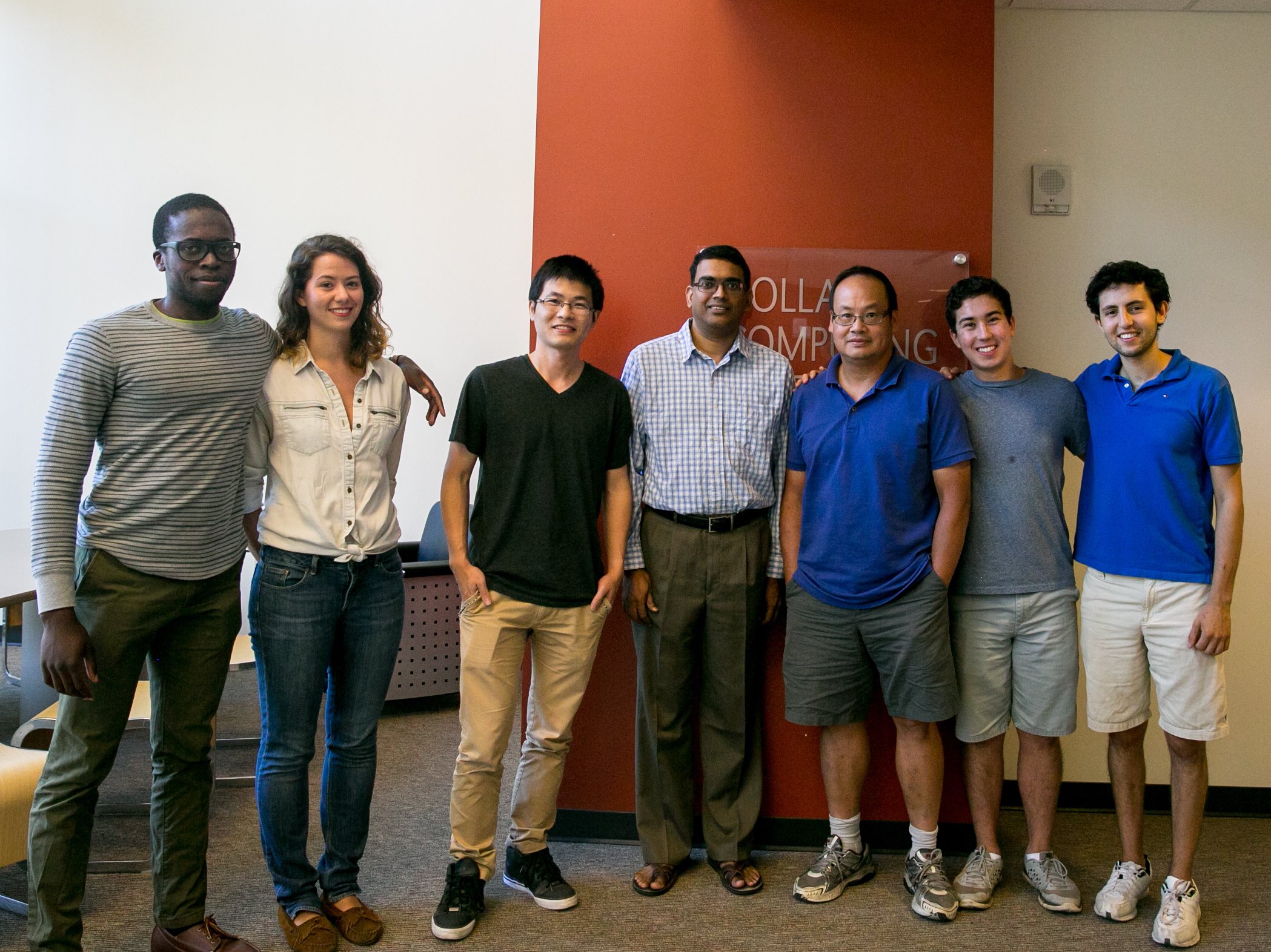Aug 17, 2016
By Victoria Grdina

Meriel Stein originally began her college career at Rowan University as an art history major. In an effort to improve some of the difficult databases she was often forced to use in her studies, she began taking an interest in computer programming. That interest eventually led Stein to change her major and spend this summer researching Android app malware at the University of Nebraska–Lincoln.
The Department of Computer Science and Engineering welcomed Stein, Andrew Walwema of Oakland University, Elan Miller of Washington University in St. Louis, and Elijah Cain of Santa Monica City College to Nebraska in June as participants in its Summer Research Program. The program was supported by the office of Graduate Studies, the National Science Foundation, and the CSE Department. Under the guidance of Profs. Byrav Ramamurthy, Witty Srisa-An, and Qiben Yan, the undergraduate students spent 10 weeks conducting various research projects focused specifically on the hot topic of mobile security.
“Over the past five years, mobile devices have become more popular, and with that more apps, and more apps that are likely to be malicious,” said Walwema. “People are trying to get users’ personal information and use it to their advantage.”
Walwema partnered with Miller to analyze the top 100 apps in Google Play Store and check for personal information leaks. They found that many of them are extremely unsafe, and apps like Multicraft are releasing zip codes, device numbers, and plenty of other data.

“We found a significant amount of location links, and even username and password links,” Miller said. “So don’t download third-party apps.”
The ability to release such personal information is certainly frightening to individual users, but it’s also extremely threatening for larger organizations like hospitals that are responsible for protecting personal information. Cain’s research project focused on security in healthcare applications.
“As long as any healthcare application is using or sending any sort of data to a covered entity, then they have to comply with specific rules,” said Cain. “That can be quite challenging in certain ways, especially since because of the sensitivity of healthcare information, it’s often a high target for cyber criminals and malicious users. Software developers have to be extra careful when developing anything with any sort of healthcare involvement.”
In addition to learning valuable security information that will prove advantageous in future studies, jobs, and everyday technology use, the students said they appreciated the supportive members of the CSE department.
“It was pretty close-knit. My mentor was one of the graduate students (Vishnu Sivadasan), and he worked close to me. He was always there and always willing to help,” Cain said. “Same with my professor. Anytime I needed something I could always shoot him an email, and he was always quick to respond and helpful as well. I wasn’t left to my own devices.”
Stein agreed that it was the faculty’s commitment to both security and students that attracted her to the program.
“The security-focused department over here is really good,” Stein said. “Dr. Witty’s amazing, and I really wanted to work with them. The faculty is very supportive of its research students.”
Stein also says she plans to pursue a career in security in the future and that she enjoys the field’s sharp contrast to the art history major that ultimately brought her here.
“I really like that you can definitely be right or wrong. With arts and humanities, you cannot,” Stein said. “The computer has the final say, which I like.”
More details at: https://www.unl.edu/summerprogram/security